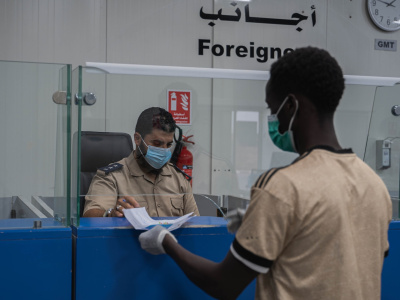
Will COVID-19 change migration cooperation between European and African countries?
Amanda Bisong highlights six issues that European and African policymakers should consider when negotiating migration cooperation between countries in both continents in a post-COVID-19 setting.
Summary
This briefing note highlights six issues that European and African policymakers should consider when negotiating migration cooperation between countries in both continents in a post-COVID-19 setting. These focus on irregular migration, return migration, migration and development, mobility of migrant workers and students, legal pathways to migration, and diaspora engagement.
The COVID-19 pandemic is having an enormous impact on mobility. But migration cooperation between European and African countries has continued nonetheless, responding to the changes in the policies of governments as they tackle the crisis. In some cases, migration has continued regardless of the restrictions to mobility. Global travel restrictions have in some instances even led to an increase in the smuggling of migrants.
This brief analyses how migration cooperation may need to change to reflect the new realities. But many questions still remain unresolved. For instance: How to ensure mobility for migrant workers and students, while taking steps to curb irregular migration? And will there be a change in the use of official development assistance (ODA) in promoting and supporting migration cooperation?
One thing remains certain: policymakers need to come up with out-of-the-box solutions to promote policies that will benefit migrants, their families and their communities of origin and host communities. The postponed AU-EU Summit offers the time to reshape migration cooperation between European and African countries.




